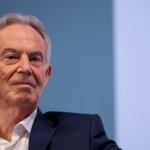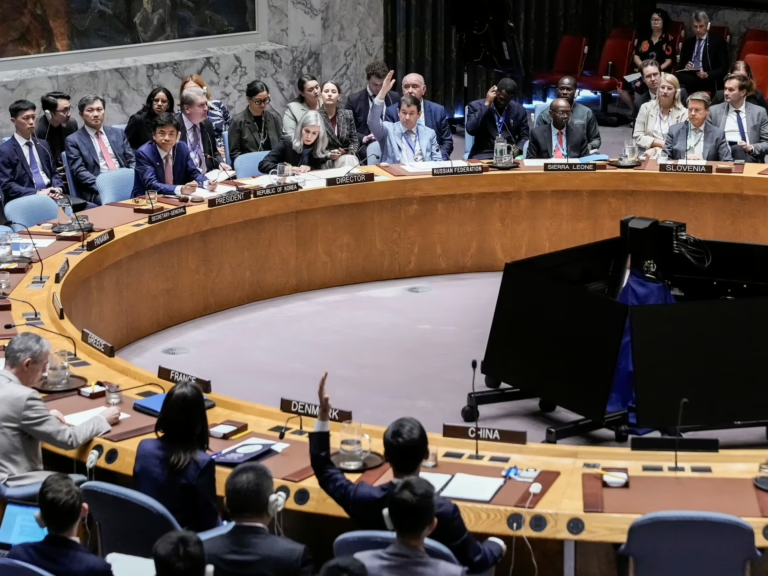Since the Cold War concluded, a compelling narrative has taken root in Western foreign policy circles: the idea of the “smart” sanction. This concept promotes sanctions as a precise, ethical alternative to armed conflict, designed to target a hostile regime’s financial lifelines without inflicting harm on its civilian population.
However, this notion is deeply flawed. Our economy-31m-2030-billions/” title=”Nigeria's Creator … Soars: From .2M Today to Potential Billions by 2030!”>recent comprehensive study on Iran’s sanctions regime reveals that these measures were far from precise interventions. Instead, they acted like a blunt instrument, devastating the very segment of society most capable of fostering moderation and stability-the middle class. This outcome represents a significant strategic misstep for Western policymakers.
The emergence of Iran’s contemporary middle class was a gradual evolution spanning over a century. It began during the Pahlavi era with the rise of a secular, professional cadre of civil servants, experts, and managers who developed the nation’s modern infrastructure, financed largely by oil revenues. Following the 1979 revolution, the Islamic Republic expanded this middle class further, elevating millions from poverty into realms of education and opportunity previously inaccessible.
This educated and empowered demographic became the cornerstone for political reform. It supported President Mohammad Khatami’s reformist agenda in the late 1990s, energized the 2009 Green Movement protests, and fueled the recent “Woman, Life, Freedom” demonstrations. Moreover, it was the entrepreneurial force behind Tehran’s burgeoning tech industry, launching homegrown platforms akin to Amazon (Digikala) and Uber (Snapp), serving millions domestically.
In essence, this middle class was the driving force behind a forward-looking Iran. Yet, sanctions obliterated this progress.
How can we confidently attribute this decline to sanctions rather than the regime’s persistent mismanagement? To answer this, we moved beyond anecdotal evidence and partisan narratives. Our peer-reviewed research, published in the European Journal of Political Economy, employed a rigorous approach: constructing a “synthetic Iran” from data.
Utilizing the synthetic control method, a sophisticated statistical tool, we created a composite model of Iran by combining data from comparable nations such as Tunisia, Qatar, Malaysia, Azerbaijan, and Indonesia. This model mirrored Iran’s economic and social trends perfectly before 2012 but was never subjected to international sanctions.
This methodology provided a clear counterfactual scenario, revealing what Iran’s middle class trajectory might have been without sanctions. While Iran has faced various sanctions for decades due to its foreign policy, the sanctions imposed from 2012 onward were unprecedented in severity and scope.
The findings are stark. From 2012, Iran’s middle class began shrinking sharply compared to its sanction-free synthetic counterpart. Between 2012 and 2019, sanctions caused an average 17 percentage point reduction in the middle class’s size. By 2019, following the introduction of the US “maximum pressure” campaign, this gap widened to 28 percentage points.
These figures represent millions of individuals-engineers, healthcare workers, educators, entrepreneurs, and retirees-who had attained economic stability only to lose it under the weight of intensified sanctions.
This trend is not merely theoretical. Public perception data corroborates it. In 2005, a global survey (World Value Survey) showed that 79 percent of Iranians identified as middle class. By early 2020, that figure had plummeted below 64 percent, a decline echoed by economists working within Iran.
The erosion of the middle class was no accident but the predictable outcome of economic forces triggered by sanctions. First, sanctions choked off foreign investment critical for creating skilled, well-paying jobs, halting the development of factories and tech startups.
Second, they crippled trade, causing thousands of small and medium enterprises-the backbone of any thriving economy-to collapse due to their inability to import components or export products.
Most devastatingly, sanctions fueled rampant inflation. The collapse of the national currency wiped out family savings, hitting salaried professionals and pensioners hardest. This core middle-class group was thrust into poverty, swelling the ranks of informal employment.
While sanctions compounded these issues, they did not act in isolation. Iran’s economy was already weakened by endemic corruption and poor governance. Our analysis accounts for these factors, showing that sanctions acted as a “misery multiplier,” transforming existing economic challenges into a full-blown social crisis.
This economic narrative is also a story of profound injustice. A nation’s middle class is its stabilizing force, promoting moderation, gradual reform, and sustaining organized political movements.
By dismantling this group, Western sanctions did more than inflict hardship-they inadvertently empowered the very hardliners they sought to undermine. The regime could deflect blame onto foreign adversaries while tightening its grip on a population struggling to survive.
The paradox of the “maximum pressure” strategy is that it created fertile ground for Iran’s most extreme factions to flourish. When survival becomes the primary concern, mobilizing for democratic change becomes nearly impossible. Desperation breeds instability, which in turn strengthens authoritarian rule.
Though marketed as targeted measures, these sanctions amounted to an economic assault on Iranian society as a whole-and one that ultimately undermines Western strategic goals.
As new UN sanctions are reinstated, policymakers must reflect: Are these actions enhancing global security, or merely deepening suffering and bolstering the very forces they aim to contain?
These sanctions mirror past efforts-reckless gambles that punish the country’s future leaders rather than its current rulers.

















